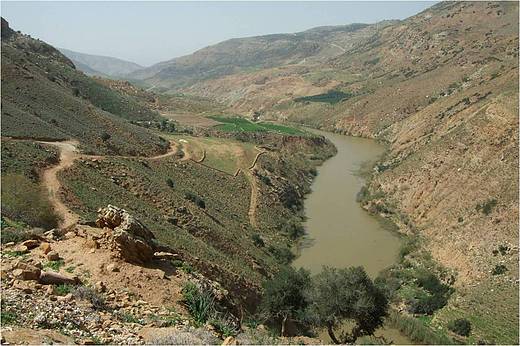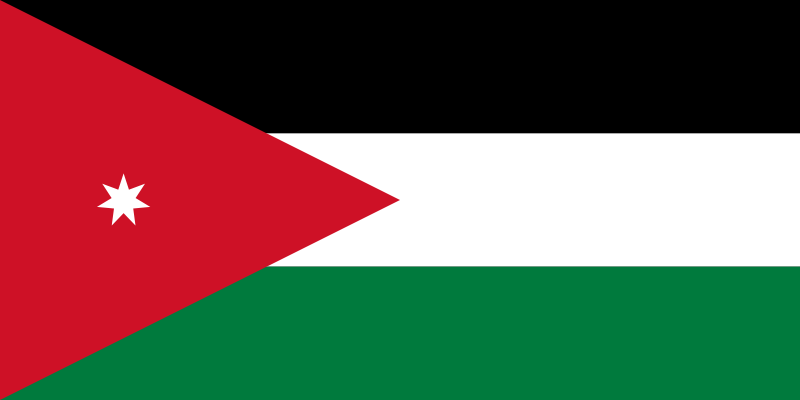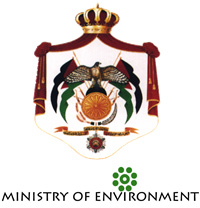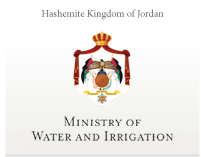Developing Policy-Relevant Capacity for Implementation of the Global Environmental Conventions in Jordan
Project Overview
The project’s long-term goal was to develop the policy and legal frameworks in Jordan to strengthen compliance with Global Environmental conventions. The project objective was to develop policy-relevant capacities for the implementation of the three Rio Conventions. The project adopted an approach for mainstreaming and capitalizing upon existing national initiatives already engaged in the application of policies and laws through applied research, which will therefore ensure that the continuity of any enforcement measures of policies and laws will be based on nationally tested and demonstrated systems and approaches
The project addressed the thematic NCSA reports, as well as the cross-cutting assessment which confirmed that the main cross-cutting capacity development priority issue is “linking research to policy development” in that the existing research capacities in environmental and natural sciences do not adequately address the global environmental management themes in the areas of biodiversity, desertification and climate change. To achieve this, the project targeted key research and education institutions and develop necessary knowledge base by building on existing in-house capacities and built upon existing policies and legal frameworks to ensure that the current national efforts for reforming and implementing these frameworks are enabled and strengthened to catalyze the required reforms.
Project Details
Jordan is a small, middle-income country with a narrow natural resource base, water scarcity, limited oil resources, a small domestic market and a predominantly young population. It is located in a region where political and security upheavals have had severe repercussions on the country’s development.
The economic downturn of the mid-1980s and the impact of the 1991 Gulf War demonstrated the vulnerability of Jordan to external factors. The structural adjustment and macroeconomic reform programmes implemented as a result were generally successful in realizing their macro-objectives. Economic growth rates averaged 5.5 per cent between 2000 and 2006; growth in real gross domestic product reached 7.7 per cent in 2004 and 8.4 per cent in 2005. The volume of foreign direct investment amounted to $1.5 billion in 2005, and exports increased substantially. In 2000, Jordan accessed to the World Trade Organization and signed an economic association agreement with the European Union in 2002. Subsequently, free trade agreements with Singapore and the United States came into force.
Despite the repercussions of the 2003 Iraq war on its economy, Jordan has realized impressive human development results and is on track to achieve most of the Millennium Development Goals (MDGs). It ranked 86 in the Human Development Report 2006, with satisfactory indicators on life expectancy (71.6), child mortality (2.7 per cent) and maternal mortality (0.04 per cent), combined with good levels of primary and secondary school enrolment (79 per cent) and literacy (96 per cent). Nevertheless, Jordan still faces serious challenges.
The macroeconomic reforms of the past decade have not translated into tangible poverty reduction and employment generation outcomes, and the economy is fragile. Despite new social welfare and development funds and programmes, poverty stands at 14.2 per cent, and there are wide gender and geographic disparities. Twenty pockets of poverty have been identified across the country, and there is a risk that the segment of the near-poor (over 600,000 in a population of close to 6 million) will fall below the poverty line. Unemployment is estimated at 12.5 per cent, and the economy is unable to accommodate new job seekers, especially educated young men and women. The recent influx of Iraqis into Jordan has put pressure on services and infrastructure.
Considerable investments have been made in the past few years to improve social services, encourage participation in political and economic life, and enhance transparency and accountability. Inefficiencies hamper public sector management at the central and local levels, however, and progress towards decentralization is minimal. Although Jordan ranks 40th (out of 142 countries) in the Transparency International corruption perceptions index, the public perception is that corruption and nepotism are pervasive.
The Constitution guarantees equality of rights and opportunities, but female participation in political and economic life is low. Women’s share in economic activity is only 21 per cent of the economically active population, and their representation in parliament and government stands at 7.9 per cent and 10.7 per cent, respectively.
Arable land represents only 7 per cent of the land area. Jordan is one of the 10 most water-scarce countries in the world, with a per capita water availability of 153 m3 per year. Jordan is adhering to international environmental conventions and is establishing mechanisms to support their implementation. Nevertheless, population growth, rapid urbanization, industrialization, air pollution in urban areas, and low energy efficiency exert pressure on water and land resources and to generate environmental pollution.
The National Agenda and the Kuluna Al Urdun (We Are All Jordan) document, which spell out the national vision and priorities for the period 2006-2015, rest on eight pillars, including political development and inclusion; justice and legislation; financial services and fiscal reform; employment support and vocational training; and social welfare. They set ambitious objectives, most of which are in line with the MDGs.
The areas of intervention set out in the country programme document were based on the national agenda and made in consultation with all relevant entities in line with the formulation process mandated by the United Nations Development Assistance Framework (UNDAF). The institutions involved were active members in the UNDAF working groups where consensus was reached on priorities and areas of intervention by each organization.
Key Results and Outputs
Outcome 1: Increased communities (esp. women and youth) productivity, empowerment and participation in local development initiatives
- Output 1.1: Increased employment skills and work opportunities for women, young people, food in-secure farmers, and persons with disabilities in under-served areas.
- Output 1.2: Enhanced employment skills of young men and women, business processes and market responsiveness of micro, small and medium enterprises (MSMEs) in Zarqa, Aqaba, Balqa, Irbid and Mafraq
Outcome 2: Strengthened institutions, systems and processes to promote, coordinate and implement pro-poor gender sensitive national development objectives based on good governance principles
- Output 2.1: Uniform and transparent systems for accounting, procurement and property tax collection systems set up and operational.
- Output 2.2: Capacity of the Ministry of Public Sector Development enhanced to improve service delivery at pilot line ministries
- Output 2.3: Institutional capacity of Anti-Corruption Commission built up
Outcome 3: Environmental policies aligned to global conventions and national implementation capacities enhanced.
- Output 3.1: Strengthened national capacities to generate information for evidence based policy making
- Output 3.2: Policy relevant capacities for the implementation of the global environment conventions are developed
- Output 3.3: Climate change adaptation streamlined in national action plans in ways that protect the vulnerable groups
- Output 3.4: The protection and sustainable use of agricultural resources and biological diversity included in relevant national and sectoral plans particularly for major hotspots
- Output 3.5: Policy options for higher energy efficiency
Outcome 4: Enhanced capacities for safer management of hazardous waste
- Output 4.1: Enhanced national capacity to implement the National Implementation Plan related to persistent organic pollutants (POPs) in accordance with the Stockholm Convention.
Reports and Publications
ProDocs
Developing Policy-Relevant Capacity for Implementation of the Global Environmental Conventions in Jordan - Official Document (2008)
Monitoring and Evaluation
Project Start:
- Project Inception Workshop: will be held within the first 2 months of project start with those with assigned roles in the project organization structure, UNDP country office and where appropriate/feasible regional technical policy and programme advisors as well as other stakeholders. The Inception Workshop is crucial to building ownership for the project results and to plan the first year annual work plan.
Daily:
- Day to day monitoring of implementation progress: will be the responsibility of the Project Manager, based on the project's Annual Work Plan and its indicators, with overall guidance from the Project Director. The Project Team will inform the UNDP-CO of any delays or difficulties faced during implementation so that the appropriate support or corrective measures can be adopted in a timely and remedial fashion.
Quarterly:
- Project Progress Reports (PPR): quarterly reports will be assembled based on the information recorded and monitored in the UNDP Enhanced Results Based Management Platform. Risk analysis will be logged and regularly updated in ATLAS.
Annually:
- Annual Project Review/Project Implementation Reports (APR/PIR): This key report is prepared to monitor progress made since project start and in particular for the previous reporting period (30 June to 1 July). The APR/PIR combines both UNDP and GEF reporting requirements.
Periodic Monitoring through Site Visits:
- UNDP CO and the UNDP RCU will conduct visits to project sites based on the agreed schedule in the project's Inception Report/Annual Work Plan to assess first hand project progress. Other members of the Project Board may also join these visits. A Field Visit Report/BTOR will be prepared by the CO and UNDP RCU and will be circulated no less than one month after the visit to the project team and Project Board members.
Mid-Term of Project Cycle:
- Mid-Term Evaluation: will determine progress being made toward the achievement of outcomes and will identify course correction if needed. It will focus on the effectiveness, efficiency and timeliness of project implementation; will highlight issues requiring decisions and actions; and will present initial lessons learned about project design, implementation and management. Findings of this review will be incorporated as recommendations for enhanced implementation during the final half of the project’s term.
End of Project:
- Final Evaluation: will take place three months prior to the final Project Board meeting and will be undertaken in accordance with UNDP and GEF guidance. The final evaluation will focus on the delivery of the project’s results as initially planned (and as corrected after the mid-term evaluation, if any such correction took place). The final evaluation will look at impact and sustainability of results, including the contribution to capacity development and the achievement of global environmental benefits/goals. The Terminal Evaluation should also provide recommendations for follow-up activities.
- Project Terminal Report: This comprehensive report will summarize the results achieved (objectives, outcomes, outputs), lessons learned, problems met and areas where results may not have been achieved. It will also lie out recommendations for any further steps that may need to be taken to ensure sustainability and replicability of the project’s results.
Learning and Knowledge Sharing:
- Results from the project will be disseminated within and beyond the project intervention zone through existing information sharing networks and forums.
- The project will identify and participate, as relevant and appropriate, in scientific, policy-based and/or any other networks, which may be of benefit to project implementation though lessons learned. The project will identify, analyze, and share lessons learned that might be beneficial in the design and implementation of similar future projects.
- Finally, there will be a two-way flow of information between this project and other projects of a similar focus.




